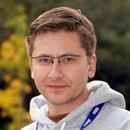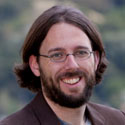Academic Editors
The following people constitute the Editorial Board of Academic Editors for PeerJ. These active academics are the Editors who seek peer reviewers, evaluate their responses, and make editorial decisions on each submission to the journal. Learn more about becoming an Editor.

Christopher John Webster
Prof. Chris Webster is Dean of the Faculty of Architecture, the University of Hong Kong, and leads the HKUrbanLab. He has degrees in urban planning, computer science, economics and economic geography and is a leading urban theorist and spatial economic modeller. He has published over 150 scholarly papers on the idea of spontaneous urban order and received over US$20M grants for research and teaching and learning projects.
His research interests includes leading HKU’s Healthy High Density Cities research group to establish systematic evidence for the relationship between urban configuration (planned and spontaneous) and individual health.
He is a strong supporter of the discipline of Urban Science, believing that much (but by no means all) urban social science of the 20th century did not deliver on its claims and that advances in big data, sensing technology and computing power, are leading to a new engagement between urban decision makers and scientists. The 20th century urban scholars' reliance on small numbers, descriptive case studies, rudimentary analytics, cross-sectional designs and subjective measurements from social surveys are giving way to a more mature phase of urban science, with large-N panel studies, quasi and RCT designs, temporally and spatially fine-grained units of analysis, and a high degree of inter-disciplinarity. Professor Webster's hope is that an increasing number of Urban Science studies will appear in widely-read public science journals.

Mathew J Wedel
I am a vertebrate paleontologist, and my main areas of interest are sauropod dinosaurs and the evolution of pneumatic (air-filled) bones in dinosaurs and birds. I'm also interested in the evolution of heads and necks in vertebrates, and in the nervous systems of very large animals. I've been fortunate to coauthor three papers naming new dinosaurs: the sauropods Sauroposeidon (2000) and Brontomerus (2011), and the early horned dinosaur Aquilops (2014). I am currently an Associate Professor at Western University of Health Sciences in Pomona, California, where I teach gross anatomy. In 2016 my book "The Sauropod Dinosaurs: Life in the Age of Giants", with artist and lead author Mark Hallett, was published by Johns Hopkins University Press.
In my spare time I enjoy stargazing, and I write the monthly Binocular Highlights column and the occasional feature article for Sky & Telescope magazine.

Christian Wehenkel
Professor of forest genetics, forest ecosystem analysis, forestry, biometrics, forest growth, and biodiversity, Universidad Juarez del Estado de Durango. Author / co-author of more than 170 international and national publications.Technical manager of more than 40 national and international projects. Evaluator of CONHACYT, Mexico and other institutions. Member of the Latin American Forest Genetic Resources Network (LAFORGEN).
Andrew J Weightman
Professor of Microbiology and Division Leader (Organisms & Environment) at Cardiff University, School of Biosciences

Ingrid M Weiss
Professor for Biobased Materials at IBBS - Institute of Biomaterials and Biomolecular Systems, University of Stuttgart, Germany.
Past Head of Biomineralization at INM – Leibniz Institute for New Materials, Saarbrücken, Germany and Private Lecturer "Biochemistry" at the University of Regensburg, Germany.

Kenneth C Welch Jr.
Associate Professor of Comparative Vertebrate Physiology at the University of Toronto Scarborough; Associate Chair of Research and Graduate Affairs, Department of Biological Sciences, University of Toronto Scarborough; Chair-Elect of the Division of Comparative Physiology and Biochemistry of The Society for Integrative Biology.

Claire M Wells
Dr. Wells completed her PhD in 1998 from Kings College London and completed postdoctoral studies in the laboratory of Prof. Anne Ridley at University College London before returning to King's in 2003. Dr. Wells is now a Senior lecturer in the Division of Cancer Studies. She has published more than 20 papers in reputed journals serves as an editorial board member for a number of international journals and is currently associated with Cancer Research Technology’s PAK drug discovery programme.

Bernhard Wernly
Dr Bernhard Wernly is a Physician-scientist at the Paracelsus Medical University, Salzberg, Austria. He is trained in cardiology and intensive care medicine, MD, PhD and currently doing a Master in Public Health.

Gary M. Wessel
Professor of Biology in the Department of Molecular Biology, Cellular Biology, and Biochemistry at Brown University.

Benjamin J. Whalley
Senior Lecturer in Pharmacology, University of Reading. British Neuroscience Association Local Group Representative. British Pharmacological Society (Member). UK Epilepsy Research Network (Interventions & Therapies CWG). Pharmacist (GPhC registered).
Investigating unmet clinical need in epilepsy with a specific focus on cannabinoid pharmacology using preclinical animal models and electrophysiological techniques supported by convention molecular and biochemical approaches.

Easton R White
I am a quantitative marine ecologist who uses mathematical and statistical tools, coupled with experiments and field observations, to answer questions in ecology, conservation science, sustainability, and ecosystem management. Most of my work is focused on marine systems, especially fisheries and spatial planning. I am a new Assistant Professor in the Department of Biological Sciences at the University of New Hampshire. Prior to joining UNH, I was a research associate at the University of Vermont with the QuEST program, a NSF-funded PhD traineeship focused on quantitative skills, interdisciplinary work, as well as diversity and inclusion.
I currently conduct research on assessing the effectiveness of protected area networks, improving species monitoring programs, and modeling socio-ecological systems in the context of fisheries. My work centers on how environmental variability, in particular rare events (e.g., hurricanes, COVID-19 pandemic), affects ecosystems and those that depend on them. My current work is funded through a NSF grant focused on interdisciplinary approaches to study coupled natural-human systems with Madagascar fisheries as a case study.

Ethan P White
Associate Professor in the Department of Wildlife Ecology and Conservation at the University of Florida. Moore Foundation Investigator in Data-Driven Discovery. National Science Foundation CAREER 'Young Investigators' Award recipient. Member of the Data Carpentry and Impactstory boards of directors.
My research focuses on data-intensive questions in ecology, using large ecological datasets, advanced statistical/machine learning methods, and theoretical modeling to understand ecological patterns.

